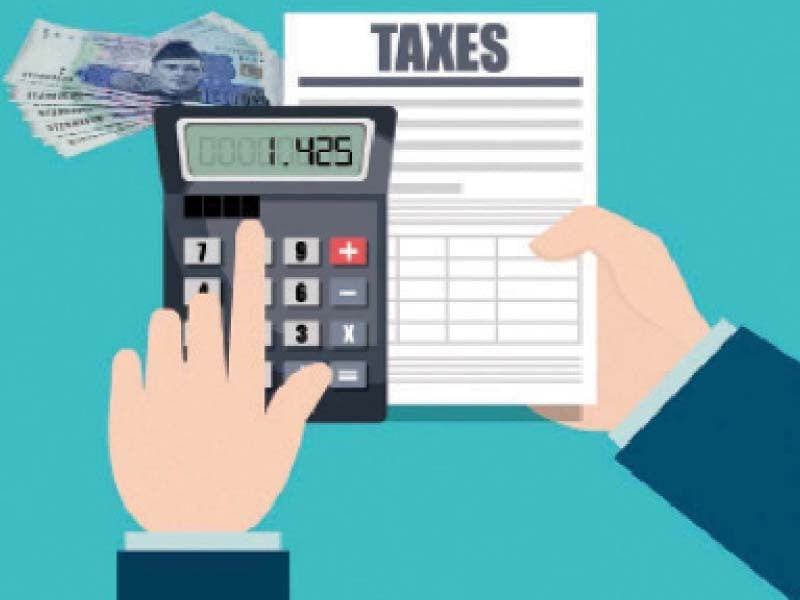-

-
-
Loading

Loading


For too long, we have allowed Pakistan's tax codes to wreak havoc on our state's finances – revenue shortfalls lead to excessive borrowing, cuts in essential services, enormously inefficient disruptions in long-term projects and tax increases that only exacerbate the crisis. These crises are exceptionally deep and lasting, directly resulting from Pakistan having the worst tax system in the region. The time has come to consider a flat-rate tax on personal income, general sales tax (GST), corporate income and customs and excise duties. Revenue forecasts made by the finance ministry each year are far off the mark and consistently illustrate the state's fiscal malaise. This issue, more than anything else, is the root cause of our current fiscal crisis. Today, Pakistan's tax structure is characterised by top marginal tax rates among the highest in the region in nearly every tax category, applied to a small tax base. Every opportunity to reform Pakistan's tax system goes unheeded, and the state once again reaches a fiscal crisis, teetering on the brink of a serious slowdown. Excessive taxation is detrimental to labour and capital, poor and rich, men and women, young and old alike. It is an equal-opportunity tormentor. In the short run, higher taxes on labour or capital lower after-tax earnings. In the long run, mobile factors "vote with their feet" and leave the country, leaving immobile factors to suffer the tax burden. It's a lose-lose situation. Encouraging a person or business to move to another country through higher taxation is a squandered opportunity and a significant loss for the future of Pakistan. Proposing ever-higher taxes on already-suffering citizens and businesses is a recipe for disaster. It makes no sense to put Pakistan's citizens' finances in the red – they are, in fact, the reason why the state government exists. What Pakistan needs is a true economic flat-tax rate that would replace all taxes currently in effect. Many of the current taxes raise little revenue relative to their economic cost in terms of incentives, record-keeping and collection. Economics is all about incentives. A flat tax would eliminate much of the inefficiency from Pakistan's tax system by both broadening the tax base and significantly lowering the highest marginal tax rates. By having the largest possible tax base combined with the lowest possible tax rate, people have the least opportunity and incentive to avoid or evade paying taxes. Reduced incentives to avoid or evade taxes result in lower costs of monitoring these activities. Additionally, lower tax rates go hand in hand with greater incentives to work and produce. Strengths of the proposal Fairness: Everyone will pay taxes (all taxes) at the same rate. (Modest income earners will have their taxes reduced considerably). Simplicity: The straightforward calculation of the tax base and the application of a single tax rate simplify the entire tax system. Transparency: By having only one source of revenue with a single tax rate, everyone will know exactly what taxes are in effect. There will be no hidden taxes whatsoever. Completeness: By eliminating all other taxes and replacing them with a single flat-rate tax on the broadened tax base, revenues will be assured for the appropriate level of all government spending. Efficiency: The reduction of marginal tax rates, coupled with the broadening of the tax base, will minimise many distortions that make the current tax system counterproductive. The economy would undergo substantial expansion, resulting in increased revenues for the exchequer. Stability: From the day the flat tax is enacted and beyond, the government would not only get more revenues but the revenue stream would be stable from year to year. A flat-rate tax applies a single tax rate equally to all sources of income, and that rate does not change as a result of the taxpayer's volume of income. All other taxes should be repealed. In their place would be a flat-rate tax of 10% on personal income, 5% GST, 20% on corporate income, 5% customs duty, and 3% excise duty. A flat tax proposal for Pakistan is designed to minimise the disincentives induced by tax rates while still providing the requisite amount of revenue to support the services we all want and need. Pakistan has everything to gain from its implementation. The broad-based, low-rate tax minimises distortions and maximises efficiency gains. The state's competitive environment would improve, and Pakistan's economic activity and growth would increase. Tax revenues would soon exceed the most optimistic projections. The longer this new tax system is in place, the greater these gains will be. It will launch Pakistan onto a new trajectory of economic growth and prosperity for all its citizens and businesses. THE WRITER IS A PHILANTHROPIST AND AN ECONOMIST BASED IN BELGIUM
if you want to get more information about this news then click on below link
More Detail